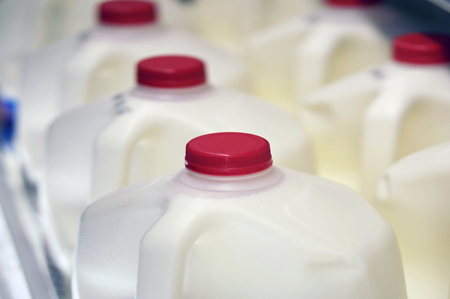Dairy prices fall again, as rains improve New Zealand prospects
Category: Dairy
 (Agrimoney) – Dairy prices took another tumble at the latest GlobalDairyTrade auction, as New Zealand milk production looks to fall less sharply than previously thought.
(Agrimoney) – Dairy prices took another tumble at the latest GlobalDairyTrade auction, as New Zealand milk production looks to fall less sharply than previously thought.
Prices at the auction, run by New Zealand dairy cooperative Fonterra, were down 72.8% from the previous event, held two weeks ago.
The sharpest losses were seen in whole milk powder, where prices were down 3.7%.
European pressure
Whole milk powder futures are now down over 30% from their recent October highs.
Writing ahead of the auction, the Bank of New Zealand said that weak prices were being driving by ample European production.
“Much more milk out of the EU, in particular, along with the Russian trade ban on EU (among others) dairy products and a generally weak euro making that product competitive on international markets have all played a part in the ongoing weakness in international dairy markets,” BNZ said.
The European supplies will “more than offset production declines in New Zealand and Australia this season and better demand indicators from China” BNZ said.
Output still strong
And New Zealand production is not falling as fast as thought, as rain helps pastures there.
There were thoughts that the El Nino effect might limit rainfall in New Zealand over the Southern Hemisphere summer.
BNZ saw production likely to be down 3-4% this season, rather than the 6% fall “that was looking more likely back in December”.
Farmer profits fall
The weak milk price threatens the New Zealand dairy sector, on which the whole country’s economy is heavily reliant.
Fonterra last month slashed its farm-gate Milk Price for the 2015-16 season from NZ$4.60 per kilo of milk solids to NZ$4.15, a 9-year low.
But BNZ said that pay-outs could fall even faster, below the NZ$4.00 a kilo mark.
On Tuesday New Zealand’s finance minister warned off the effect that lower Fonterra pay-outs could have on farmers, and the risk for the banking sector which has leant to them.
“It looks like the payout is going to be lower for longer, so its likely people are re-doing their budgets on the farms, and probably the banks are having another look at those small number of farmers who will be under real pressure,” Mr English told reporters.




